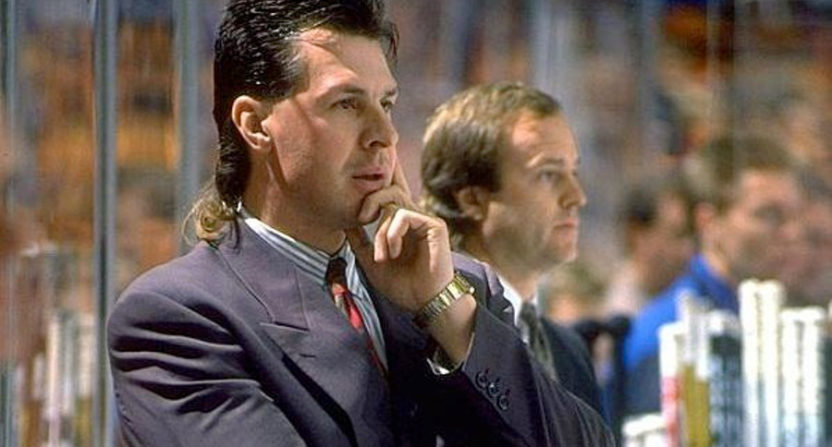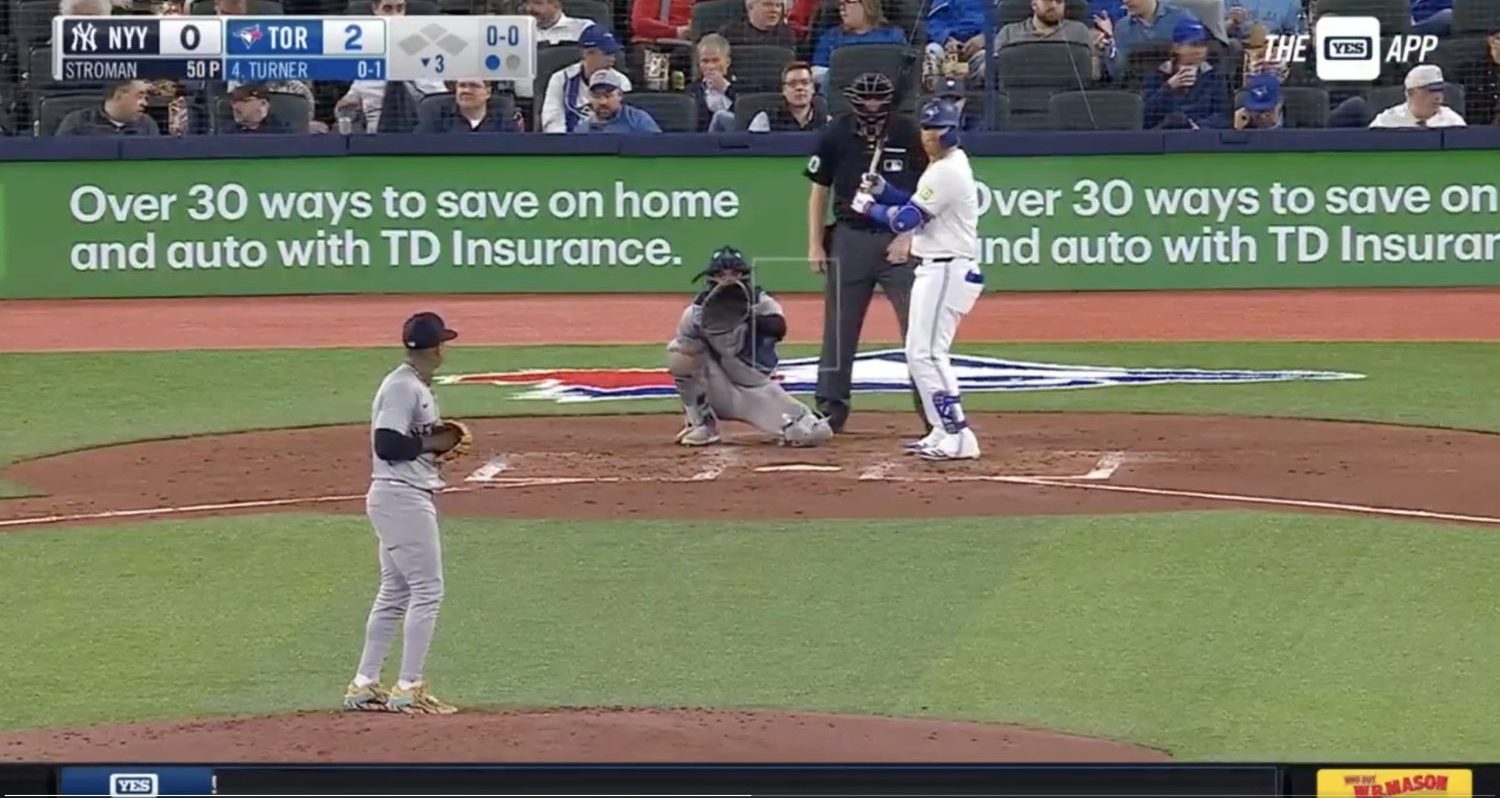Since 1996, Barry Melrose has been one of ESPN’s most prominent NHL analysts, winning many over with his personality, insight and mullet. Melrose’s time as a prominent coach may be less-remembered these days, though; yes, he left ESPN to coach the Tampa Bay Lightning in 2008, but did that for less than a year before returning to the network, and while he’s had NHL Network gigs as well (2011-2015, plus a new one), it’s his appearances on ESPN that have him maybe most known by many viewers. Before joining the Worldwide Leader, though, Melrose had a fascinating coaching career, and he explored that with Ryen Russillo Wednesday.
Melrose jumped into coaching as a WHL head coach at 31 with Medicine Hat directly following his playing career, and immediately won junior hockey’s top prize, the Memorial Cup. After another year in the WHL with Seattle, he went to the AHL for three seasons with Detroit’s Adirondack Red Wings affiliate, winning that league’s Calder Cup title in 1991-92. That led to him getting the Los Angeles Kings’ head coaching job that summer at 36. Melrose coached those Kings to a Stanley Cup Final appearance that year (helped by Wayne Gretzky’s return from injury), and while the remainder of his time in Los Angeles wasn’t as strong (his team missed the playoffs the next two seasons, he was fired partway through the 1994-95 campaign, and he saw owner Bruce McNall (then also the chair of the NHL board of governors) sell the team in 1994 and go to jail for conspiracy and fraud later that year. (The team would be forced into bankruptcy in 1995 thanks to McNall-era debts.)
Melrose talked about a lot of that with Russillo, including the Gretzky trade (1:30), how he wound up with the L.A. job (2:35), how Gretzky got hurt and almost didn’t play again (5:30), how Gretzky lobbied for more playing time as he recovered (6:40), the 1993 playoffs (9:25), and McNall going to prison (11:20). Here’s the clip; it’s also available for listening or download at ESPN:
The whole interview’s enjoyable, and has some good hockey insights. The breakdown of Melrose’s discussion with Gretzky about playing time is perhaps particularly interesting, and sheds some light on exactly how that went down. Here are some key quotes (from 6:40), with Melrose saying Gretzky was nice about it, but still insistent.
The latest
“So Gretz called me and said ‘I need to meet with you. Let’s do it in Quebec while we’re on the road.’ So Gretz, me, Bruce McNall, and Cap Raeder, my assistant coach, met at this restaurant in Quebec City, the old part of Quebec City. Unbelievable city, and if any of you guys ever want to take your wife on a nice romantic getaway, Quebec City’s gorgeous. Anyway, we’re sitting around this table, and Gretz says ‘Look it, Barry, I want to play for you, I love what you’re doing, I love the direction the team’s going, but I can’t play like this. I’ve got to play more.’ And I said ‘It’s a tough situation, that means I have to take ice time away from guys that are playing great.’ And he said ‘I know that, and normally I would say ‘Don’t do it,’ but I have to play more. If I’m going to be a factor down the stretch I have to start playing 18, 19, 20 minutes a game to get into game shape. …I have to get into game shape, but I’m not going to cause any problems. If you think that I can’t do that and I won’t be a factor, I’ll just stop playing, because I think you guys are good enough to win.'”
“That’s when I made… ‘Look it, the rest of the season I’m going to play you until your tongue’s dragging, I’m going to play you, and you come to the bench tired, and I’m going to play you again. We’ve got to get you ready for the opening night of the playoffs.’ And that’s how he was. He never demanded. He never said ‘If you don’t do this, Barry…’ And Bruce was there. Here’s the owner of the team, the guy who did everything to get Gretzky there, and that’s how both of them were. ‘It’s up to you, but Gretz has to play more, he feels he has to play more.'”
Some other quotes that stand out are from the comments at the end about how weird the McNall situation was, how Melrose still likes and visits McNall, and how happy he was to coach the Kings.
“The story came out in Cosmo, I want to say Cosmo but maybe it wasn’t Cosmo, (ed note: it was Vanity Fair) about Bruce’s financial empire being a house of cards. We knew something was wrong. …Bruce McNall ended up going to jail. I wrote him all the time. Just a great man, I’m still friends with him, and I see him all the time, whenever I go out to LA. And it was just a great time in my life, and it was a great time to be a member of the LA Kings.”
[Interview from ESPN Radio; Melrose photo from Mayor’s Manor]







